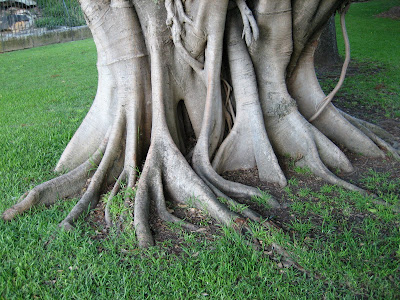This is what idolatry looks like
Australia has its own permutations of this, but sometimes it can help to see just how ugly greed can be in a context a little distant from ours in order to help us to see our own context with fresh eyes.
The day after they've given thanks for all they have, people are trampling and even killing each other to grab more (largely unnecessary) stuff. I have thought for some time that the main antidote to the idolatry of consumerist greed is thankfulness, but reflecting on this juxtaposition in the US cultural calendar makes me question that assumption. While I have been thinking and teaching for many years that thankfulness is the path to contentment, perhaps I should be concentrating more on the cultivation of trust in God's future goodness as a more important source of satisfaction. Giving thanks may briefly shift my gaze from the next purchase to what is already in my hand, but if this is to be more than a momentary distraction from the insatiable hunger for more, we need a healing of the heart: a cleaning, filling and binding of the gaping wound that our purchases briefly and ineffectually seek to soothe. Indeed, sometimes what looks like thankfulness can merely be "entitlement in thankfulness clothing",* as our thanksgiving can serve to baptise our current level of affluence, neutralising any critical reflection on the purposes and consequences of that affluence. Perhaps this particular demon requires not just prayers of thanksgiving, but also fasting.
*A phrase from my friend Claire Johnston, who helped me rethink my understanding in a recent Facebook discussion of this video.
At a practical level, minimising exposure to advertising is critically important, since though we all deny being influenced by silly ads, corporations know that we're fooling ourselves and so willingly spend hundreds of billions of dollars each year on an industry designed to erode our contentment and corrupt our desires. But it is not just avoiding the negative messages; we need to soak in the message of divine truth, grace and delight. The healing of desire is a slow process and there are no shortcuts.
One final unrelated thought: there are omnipresent riot police for every peaceful demonstration, but where are the shields and paddy wagons for these mobs? Just to be clear: I am staunchly opposed to heavy-handed policing and think that the criminalisation of dissent is a grievous injury to any claim to democratic society. I'm simply noting an irony that the surveillance and security state manages to coordinate a massive police presence at any event that might threaten the culture of endless corporate profits, but seem largely absent at these far more violent spectacles dedicated to the pursuit of that end.



















